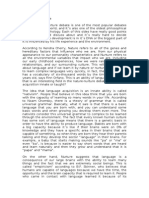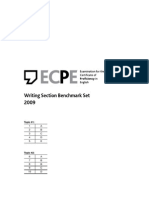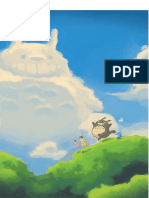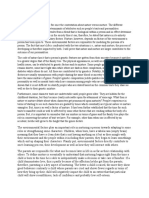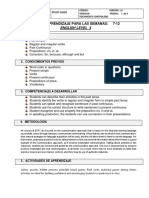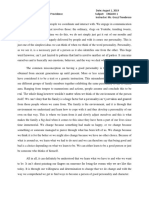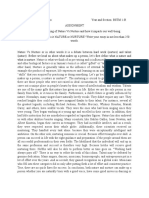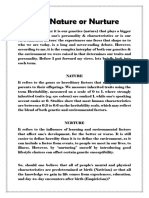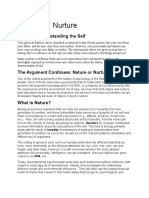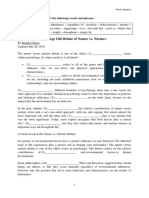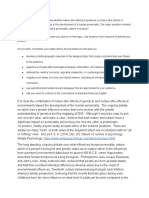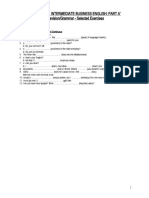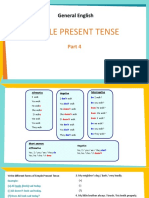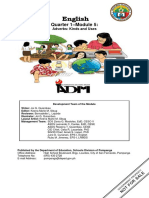0% found this document useful (0 votes)
12 views1 pageComplete - Advanced STB pg36
The document discusses the debate between nature and nurture in determining personality and talents. It poses questions about whether abilities are inherited or developed through experience. The article suggests that both genetic and environmental factors contribute to who we are.
Uploaded by
Flávia DenticeCopyright
© © All Rights Reserved
We take content rights seriously. If you suspect this is your content, claim it here.
Available Formats
Download as PDF, TXT or read online on Scribd
0% found this document useful (0 votes)
12 views1 pageComplete - Advanced STB pg36
The document discusses the debate between nature and nurture in determining personality and talents. It poses questions about whether abilities are inherited or developed through experience. The article suggests that both genetic and environmental factors contribute to who we are.
Uploaded by
Flávia DenticeCopyright
© © All Rights Reserved
We take content rights seriously. If you suspect this is your content, claim it here.
Available Formats
Download as PDF, TXT or read online on Scribd
/ 1









